
Let's talk Frisian Water Dogs
Frisian by name and frizzy by nature, Frisian Water Dogs are intelligent, independent-minded, and hardy on the inside and magnificently curly on the outside. This physically strong – and sometimes also strong-willed – breed needs firm but kind training and is not an ideal choice for a novice owner. But for the right humans they make an excellent, affectionate companion and a committed, alert watchdog, all in a wonderfully wavy and water-resistant package.Official name: Frisian Water Dog
Other names: Wetterhoun
Origins: Netherlands

| Drooling tendencies: |
|
Warm weather? |  |
| Shedding level: |  |
Suited to apartment living? | |
| Energy level (high, low, medium) *: | Medium | Family pet? * |
 |
| Compatibility with other pets: | Can stay alone? * | 
|
* We advise against leaving pets alone for long stretches. Companionship can prevent emotional distress and destructive behaviour. Speak to your veterinarian for recommendations.
Every pet is different, even within a breed; this snapshot of this breed’s specifics should be taken as an indication.
For a happy, healthy and well-behaved pet, we recommend educating and socialising your pet as well as covering their basic welfare, social and behavioural needs.
Pets should never be left unsupervised with a child.
All domestic pets are sociable and prefer company. However, they can be taught to cope with solitude from an early age. Seek the advice of your veterinarian or trainer to help you do this.
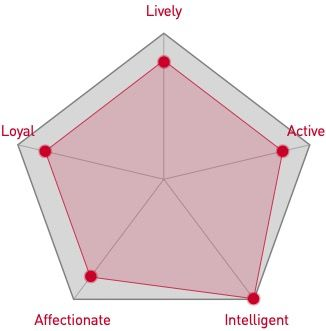

| Baby age: | Birth to 2 months |
| Puppy age: | 2 to 12 months |
| Adult age: | 1 to 7 years |
| Mature age: | 7 to 10 years |
| Senior age: | From 10 years |
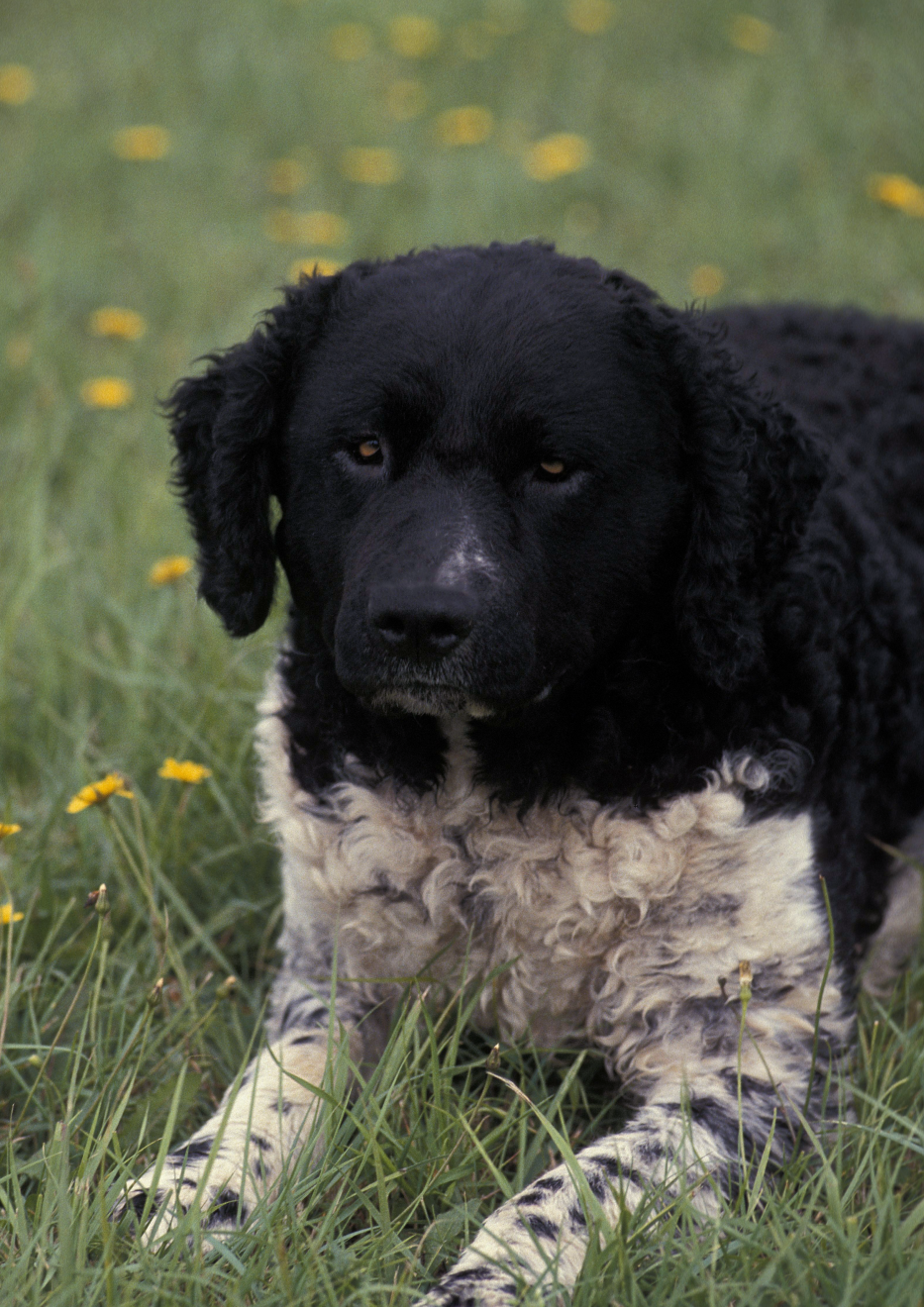
1/7
Get to know the Frisian Water Dog
All you need to know about the breed
The Frisian Water Dog’s thick and coarse curly coat is the breed’s most distinctive feature—a robust water-resistant jacket that was just the thing for this dog’s original purpose: Splashing in and out of freezing water in search of prey such as waterfowl and otters. If the modern-day Frisian Water Dog (thankfully) now enjoys much more gentle pursuits, this breed has kept all its stamina, hardiness and courage as well as its technical all-weather gear—thick and curly all over except on the head and legs.
Frisian Water Dogs, which take their name from the Netherlands province where they originate, are friendly with their humans but can be aloof with strangers, making them ideally suited to the role of guard dog. Once trained, they get on well with children, although like any other breed they should not be left unsupervised with them. Frisian Water Dogs are intelligent, making them quick learners. But nobody, and no dog is perfect and they can have a stubborn streak, meaning calm and patient training will be necessary.
While they remain pretty rare outside their homeland of the Netherlands, this is a shame: For experienced dog owners who will know how to handle them, alert and independent-minded Frisian Water Dogs make great, loyal and affectionate companions.
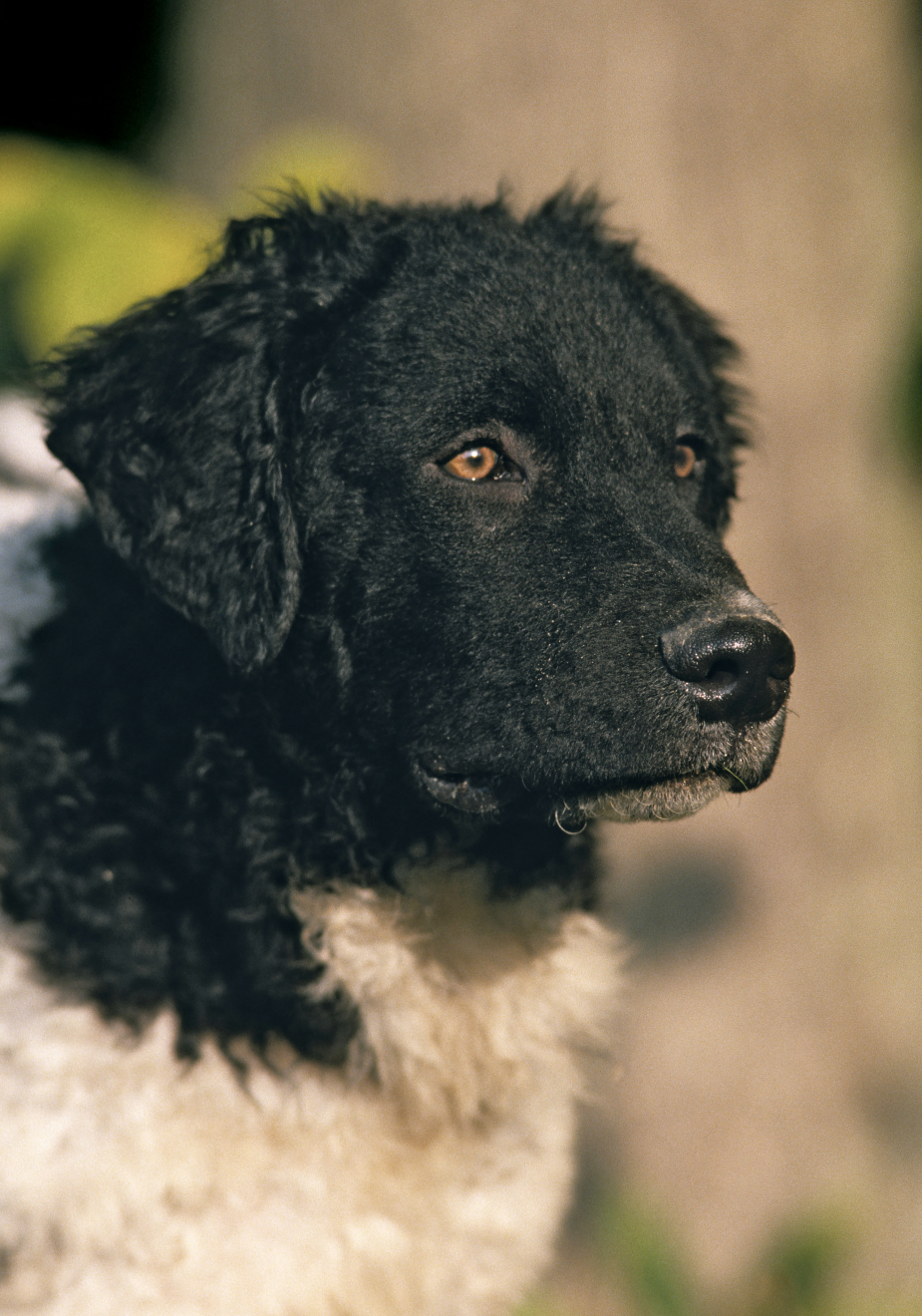
2/7
2 facts about Frisian Water Dogs
1. Curly ear test
While your first impression on setting eyes on one of these lovely canines might be of a mass of curls, take a closer look and these dogs’ locks can actually provide a clue as to their pure-breed status. According to the breed standard, Frisian Water Dogs’ ears should ideally be covered with longer, thicker hair close to the base of the ear, gradually getting shorter towards the tip.
2. Multi-named water dog
The most widely accepted alternative name for the Frisian Water Dog breed is Wetterhoun. So far so good—this makes sense given their marshland-splashing origins. But the breed has also amassed an impressively long string of other names, given its rarity: Dutch Water Spaniel (even though they are not spaniels), Dutch Water Dog (simple but effective) and Otterhoun (not to be confused with the Otterhound, a separate breed). Clear?
History of the breed
Frisian Water Dogs get their name from the Friesland province of the Netherlands where they were originally bred for hunting. Their exact origins are not clear, but they are thought to have descended from old breeds of water dogs (possibly a now-extinct breed known as the Old Water Dog), which were the precursors to modern-day retrievers.
The breed has an ancient pedigree – it has been known in the Netherlands for several centuries – but was only formally recognised in the 1940s. However, Frisian Water Dogs are rare today and most of these wavy wonders, also known as Wetterhouns or Otterhouns, are to be found in their native Netherlands.

4/7
From head to tail
Physical characteristics of Frisian Water Dogs
1. Coat
Thick curly coat in solid black/brown or with white markings.
2. Head
Broad, solid head with trowel-shaped, mid-length ears.
3. Body
Strong body with short, straight back and broad chest.
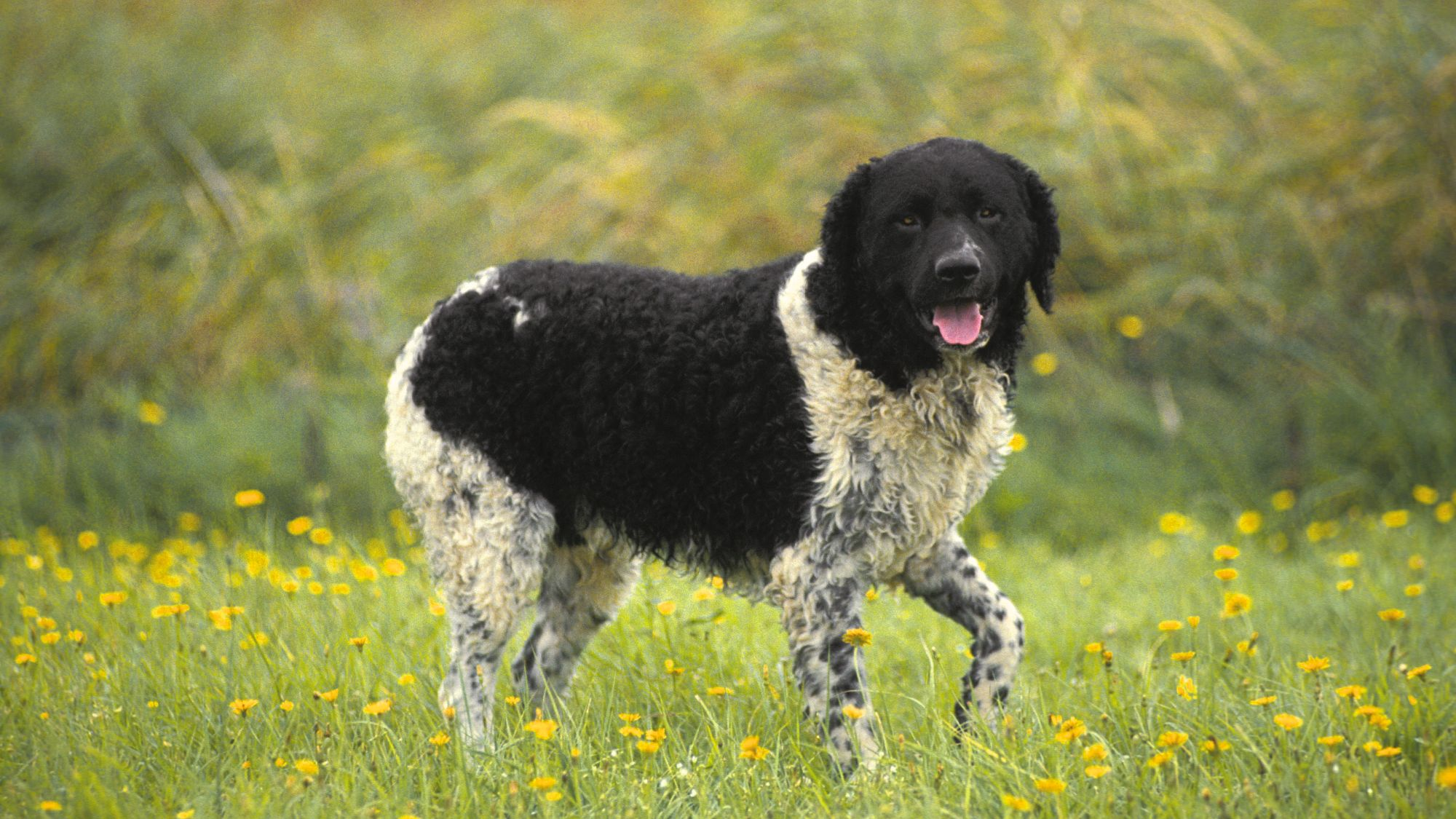
5/7
Things to look out for
From specific breed traits to a general health overview, here are some interesting facts about your Frisian Water Dog
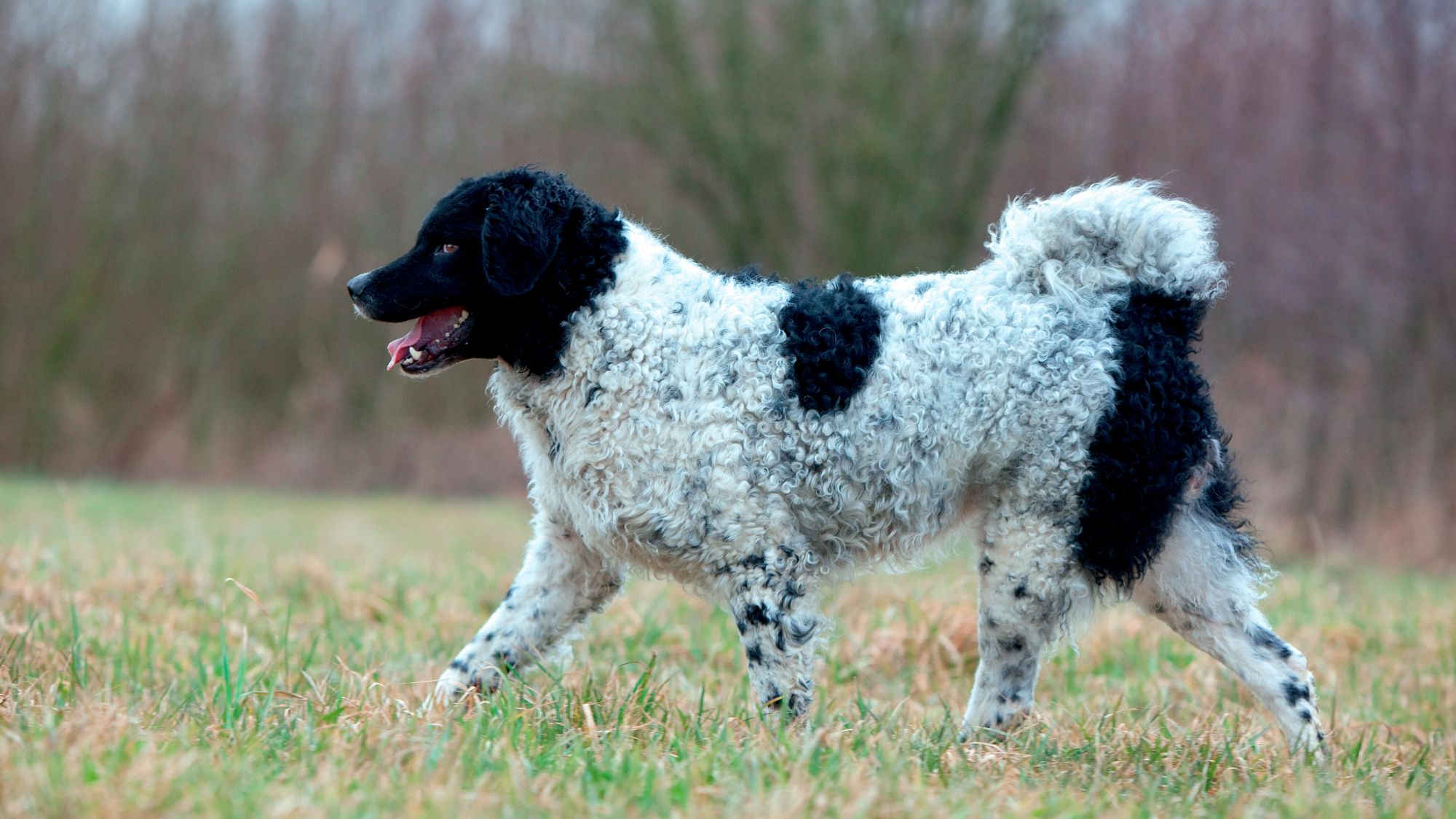
6/7
Caring for your Frisian Water Dog
Grooming, training and exercise tips
Those lovely locks are surprisingly low maintenance, just a quick groom from time to time should keep them in good condition. The naturally oily and waterproof nature of the Frisian Water Dog’s coat means frequent baths are not necessary. Make sure you clip their nails and brush their teeth regularly. Frequent exercise is important to keep these outdoorsy dogs healthy and content. Make sure off-the-lead runs are in a safe enclosed space. Training a Frisian Water Dog may not be a walk in the park with these independent-minded dogs. It is possible—but it will require plenty of patience and a firm but kind attitude. Remember to subtract any food rewards from your dog’s daily rations to avoid them becoming overweight.7/7
All about Frisian Water Dogs
This breed is not known to be aggressive—and Frisian Water Dogs are affectionate with their families. They do have the reputation of being naturally wary of strangers, making them ideally suited to the role of guard dog.
The breed sheds less than you might expect, given their lavishly curly coats. However, that doesn’t mean they are hypoallergenic, as no dog breed is—dander (skin flakes) and not hair or fur is responsible for sparking allergic reactions in humans.
translations.feature.breeds.otherbreeds
Read more on this topic

How your dog's nutrition needs change with age

How to adopt a dog

Things to consider before getting a dog
Sources
1 - Veterinary Centers of America https://vcahospitals.com/
2 - Royal Canin Dog Encyclopaedia. Ed 2010 and 2020
3 - Banfield Pet Hospital https://www.banfield.com/
4 - Royal Canin BHN Product Book
5 - American Kennel Club https://www.akc.org/



